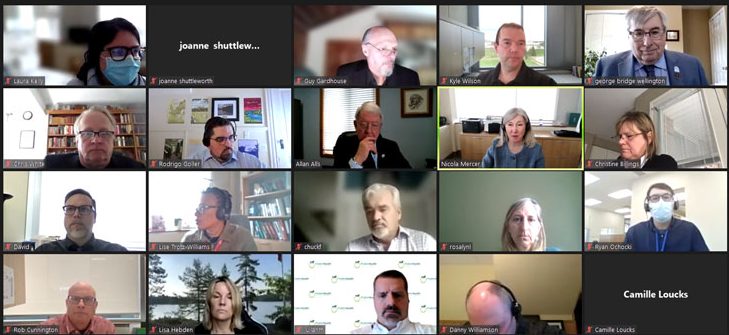GUELPH – Wellington-Dufferin-Guelph Public Health (WDGPH) had 22 privacy breaches in 2021, a significant increase over the nine it had the year before, but understandable given the agency doubled its staff, increased staff workloads, and condensed its training to focus on the pandemic, it says.
Privacy and health information analyst Ryan Ochocki told the board of health at its March 2 meeting the breaches were minor in nature and included incidents when faxes/emails were sent to the incorrect destination, vaccination records were sent to the incorrect person, and external call centre information disclosures.
“In 2021, WDGPH saw many new and existing staff working with new processes and systems, while in unfamiliar roles as part of the pandemic response, dealing with significant workloads,” Ochocki stated in his report.
“This is likely the explanation for why the number of privacy breaches is higher than average.”
Medical Officer of Health Dr. Nicola Mercer said because the health unit has hired so many people, the number of breaches per employee had actually decreased.
“But we will continue training,” she said.
Ochocki said there was also an increase in the number of Freedom of Information requests in 2021.
The agency received 16 such requests last year compared to six in 2020 and 11 in 2019.
He said several requests were complicated with some seeking many records.
In 2021, half of the requests were related to COVID-19, he said.
Sexually transmitted diseases down last year
Meanwhile, sexually transmitted diseases saw a decrease in 2020 and were beginning to rebound in 2021.
Epidemiologist Lise Trotz-Williams told the board there was a marked decrease in the annual rates of reported chlamydia, gonorrhea and syphilis in Ontario since early 2020 and that was mirrored in Wellington-Dufferin-Guelph.
Reported gonorrhoea infections decreased in the WDGPH region in 2020 as well, she said, but rebounded in 2021 to the levels seen in 2019, with most of the reported cases continuing to occur in men.
The reasons for the drop in rates are attributed to reduced opportunity for social activities during lockdowns and reduced opportunity for testing, although that is still speculation, she said.
WDGPH suspended its sexual health programs to respond to the pandemic and referred people to their primary caregiver or walk-in clinics for tests and treatment.
HIV/AIDS Resources and Community Health (ARCH) also took on testing and follow-up treatment for sexually transmitted diseases.
Trotz-Williams said public health will reinstitute testing for sexually transmitted infections this month, although initial assessments will be done virtually.




